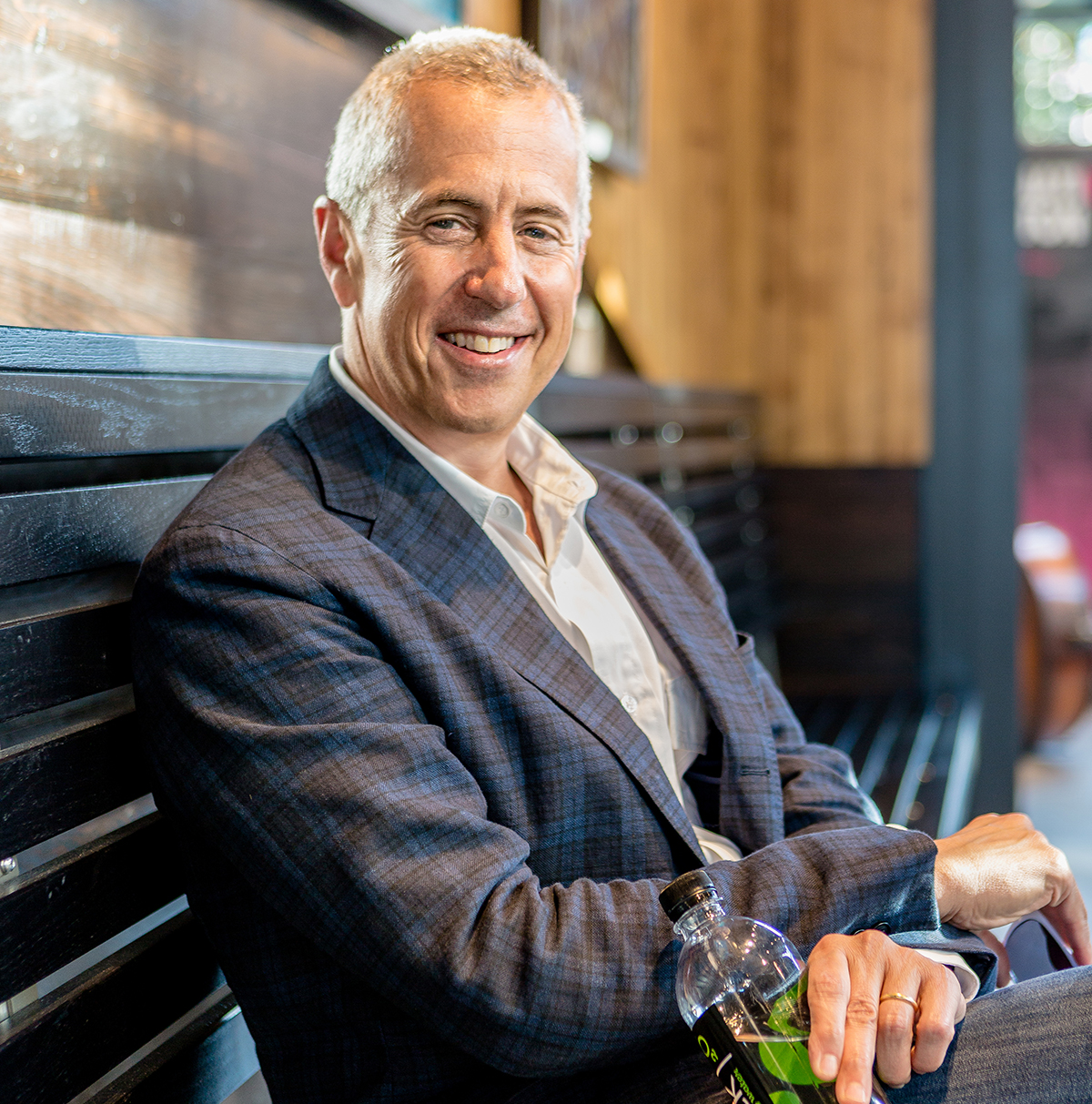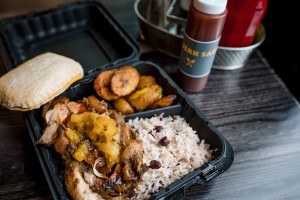Danny Meyer on the Ever-Enduring Burger, Over-Communicating, and (Not) Tipping

Danny Meyer at Shake Shack Seaport. / Photo by Mike Diskin
Danny Meyer—CEO of Union Square Hospitality Group and the influential restaurateur behind pillars of the New York dining establishment like Gramercy Park, Union Square Cafe, and, yes, Shake Shack—doesn’t always make it to the grand openings of the burger chain. But he made an exception for the 100th.
On the eve of Shake Shack Seaport’s debut, Meyer talked about the enduring idea of the roadside burger stand, and how Shake Shack helped him decide to do away with tipping at its 13 sit-down restaurants.
If someone knows you for Eleven Madison Park, or Gramercy Tavern, they might be surprised you are also the founder of Shake Shack. Where does this burger joint fit in to your overall philosophy of hospitality?
Shake Shack was an experiment in enlightened hospitality. I guess it is counterintuitive. At that point we had four New York Times three-star restaurants. Why would you open a burger stand? But we did it to put to the test that when you care for your team first, your guests second, your community third, [and] your suppliers fourth, your investors are ultimately happy.
Why did the Shake Shack model take off?
I don’t think the world had really seen too many chains that were born from a fine dining company. We buy ingredients just like we would buy them at Gramercy Tavern or Union Square Cafe. We hire people with the same level of emotional skills. You don’t have to know how to decant a bottle of wine if you work at Shake Shack, but you do have to know how to care about making other people happy.
Have you heard about Tasty Burger, a fast casual burger company based here in Boston, and their legal battle with Chipotle over its new brand, Tasty Made?
I’m really not familiar with it, but what I do know is there’s really nothing new under the sun. I also don’t think anyone in the world only eats one kind of burger. But I do know how it can feel when someone is not being original with how they portray it. It’s frustrating. Imitation is the sincerest form of flattery, but you don’t want confusion in the marketplace.
In the fall, you announced doing away with tipping at all your restaurants. But Shake Shack has always been on a different model.
Shake Shack was influential to me in terms of finally having the courage to do something in our fine dining restaurants that I had been wanting to do for a long time. Shake Shack sells burgers for $5.
How did we figure out how to pay people well above minimum wage without tipping?
Why is it the menu prices in a restaurant reflect every expense except paying the servers? It’s wrong. Over the 30 years I’ve been a restaurateur, tipped employees have seen their compensation go up by 35 times that of what cooks’ have gone up. We can’t sustain being a dining destination if a well-trained cook cannot afford to live, and I don’t want to be part of an industry that prevents people from thriving in life.
So far, we have rolled out “hospitality included,” as we call it, at four of our fine dining restaurants.
You have 13 well-regarded restaurants where you can implement this experiment. But for a different restaurant group, maybe one with less of a footprint, or different types of restaurants, is there any advice?
Over-communicate to your staff. We’re actually doing the math differently at every restaurant, based on input from our staff. Then over-communicate to your guests. Tell them why this matters. Most people don’t understand the laws around tipping, the history of tipping, [the implications].
Are servers still making what they used to make?
That’s another lesson I would tell people: This is a very different way of doing business. We guaranteed our formerly tipped employees for at least the first three months that we would pay them at least what they were making under the tipping system, and we figured 21 percent tips. We didn’t lose anybody.
[USHG] has had ups and downs. Because more people want to dine at a restaurant that is better, more consistent, and with happier staff members, it really, really helps a lot. There will come a time when so many restaurants are doing this that it will take less courage and less time, because the dining public will get it.
But I also think when no one else was doing it, we had a big advantage, because people came to Union Square Cafe as a respite from smoke [when it banned smoking 12 years before it was law]. When everybody’s doing it, we’re going to be back to a level playing field.
You mention you’re in Boston a lot, and you have five Shake Shacks in this area. Do you ever consider opening a different restaurant concept in Boston?
I don’t think a city like Boston that has a proud culinary tradition wants to see anybody, from any city, just throw a name up on a sign and then not have the lights on with real chefs and real sommeliers running it. I’m not saying that’s how people are doing it. But [not] until and unless I have a great [leader who] who says “Danny, I really want to live in Boston because my wife just got a job at Mass General or whatever, will you please open a restaurant for us?” If that happens, I will absolutely listen.


